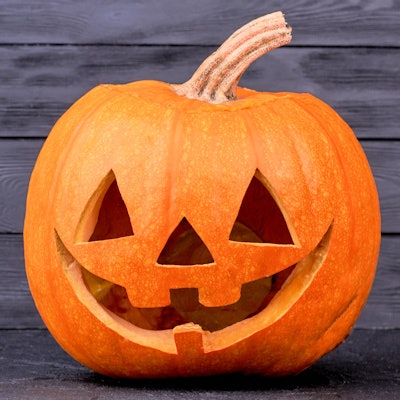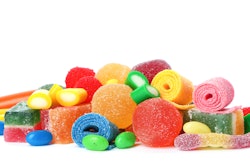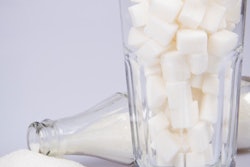
Evidence shows that excessive sugar consumption can lead to a variety of negative health outcomes, including tooth decay and diabetes. But most children can withstand a short-term binge in candy consumption without concern, a pediatric dietician told The Philadelphia Inquirer.
Candy offers minimal, if any, nutritional value. U.S. dietary guidelines recommend that children under the age of 2 not consume food containing added sugars. Older children should get less than 10% of their daily calorie intake from added sugar.
Based on this information, it makes sense to spread out candy consumption over time. But Dr. Sarah Barnes, a pediatric dietician at La Salle University in Philadelphia, said it's OK for children to eat a lot of candy all at once if they would like to on Halloween.
"I'm not going to be concerned about the consequences of a one-night candy fiasco," Barnes said in the article. "If they overdo it, and they do get a tummy ache, they will learn that lesson a lot faster than if they have a parent hovering over them, saying they will get a tummy ache."
What about kids' teeth?
Dr. Brenda Branson, a dentist practicing in Glenside, PA, told The Philadelphia Inquirer that parents can minimize the dental damage by guiding their children toward specific treats and encouraging them to brush their teeth afterward.
"The good news is that one night of candy and celebration will not cause a child to have cavities, so we really encourage parents and their children to just have fun," Dr. Steve Mitchell, director of the Sparks Dental Clinic at the University of Alabama at Birmingham (UAB), told UAB News.
Some parents may steer their children toward candy alternatives on Halloween, such as potato chips or pretzels. But from the perspective of dentistry, these options aren't much different from candy.
Starchy snacks contain complex carbohydrates, which are broken down into simple carbohydrates: sugar. The difference that can be made on Halloween night lies in how long sugar spends on the surface of teeth. The less time, the better the outcome.
"The problem with Halloween candy arises when it continues to get eaten for weeks following Halloween," Mitchell said. "On November 1, the Halloween 'stash' needs to be thrown out or at least controlled by an adult so only one piece of candy gets eaten each day."



















